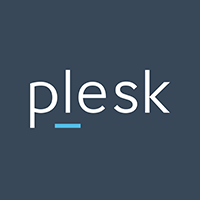As far as I know, ModSecurity 3.x has become stable recently ...
Plesk Obsidian 18.0.28 today ...
Which version is ModSecurity in Obsidian? In Onyx its version 2.9.1. For Obsidian ...
Plesk staff, when will you support libmodsecurity aka modsecurity v3 ...
Hi dear "IgorG", "Hextrator", "Azurel", "Satoshi Nakamoto",
Please consider implementing Mod Security v3.x.x (aka libmodsecurity) for NGINX and Apache in the next Plesk update.
I have created a feature request on the Official Plesk User Voice page.
Anyone interested in this feature is free to vote, the more we are the better 
At the moment any Plesk user if he wants to use Mod Security (official version supported by Plesk) is forced to use it as a web server:
or
Any Plesk user who wants to use only NGINX as a web server and without using Apache at the moment cannot use Mod Security because Plesk does not currently support it for NGINX exclusively web servers.
Here are some of the advantages of Mod Security v3.x.x (aka libmodsecurity and these advantages apply to any type of webserver, Apache, NGINX, IIS, etc., etc.,) compared to the now old and obsolete Mod Security v2.x.x as reported on the official GitHub page relating to SpyderLabs - Mod Security available at this link
SpiderLabs/ModSecurity for anyone who wants to deepen the subject.
"Libmodsecurity is one component of the ModSecurity v3 project. The library codebase serves as an interface to ModSecurity Connectors taking in web traffic and applying traditional ModSecurity processing. In general, it provides the capability to load/interpret rules written in the ModSecurity SecRules format and apply them to HTTP content provided by your application via Connectors.
If you are looking for ModSecurity for Apache (aka ModSecurity v2.x), it is still under maintenence and available: here.
What is the difference between this project and the old ModSecurity (v2.x.x) ?
- All Apache dependences have been removed
- Higher performance
- New features
- New architecture
Libmodsecurity is a complete rewrite of the ModSecurity platform. When it was first devised the ModSecurity project started as just an Apache module. Over time the project has been extended, due to popular demand, to support other platforms including (but not limited to) Nginx and IIS. In order to provide for the growing demand for additional platform support, it has became necessary to remove the Apache dependencies underlying this project, making it more platform independent.
As a result of this goal we have rearchitected Libmodsecurity such that it is no longer dependent on the Apache web server (both at compilation and during runtime). One side effect of this is that across all platforms users can expect increased performance. Additionally, we have taken this opprotunity to lay the groundwork for some new features that users have been long seeking. For example we are looking to nativly support auditlogs in the JSON format, along with a host of other functionality in future versions.
It is no longer just a module.
The 'ModSecurity' branch no longer contains the traditional module logic (for Nginx, Apache, and IIS) that has traditionally been packaged all together. Instead, this branch only contains the library portion (libmodsecurity) for this project. This library is consumed by what we have termed 'Connectors' these connectors will interface with your webserver and provide the library with a common format that it undersands. Each of these connectors is maintained as a seperate GitHub project. For instance, the Nginx connector is supplied by the ModSecurity-nginx project (
SpiderLabs/ModSecurity-nginx).
Keeping these connectors seperated allows each project to be have different release cycles, issues and development trees. Addtionally, it means that when you install ModSecurity v3 you only get exactly what you need, no extras you won't be using."
Thanks in advance for the support.

